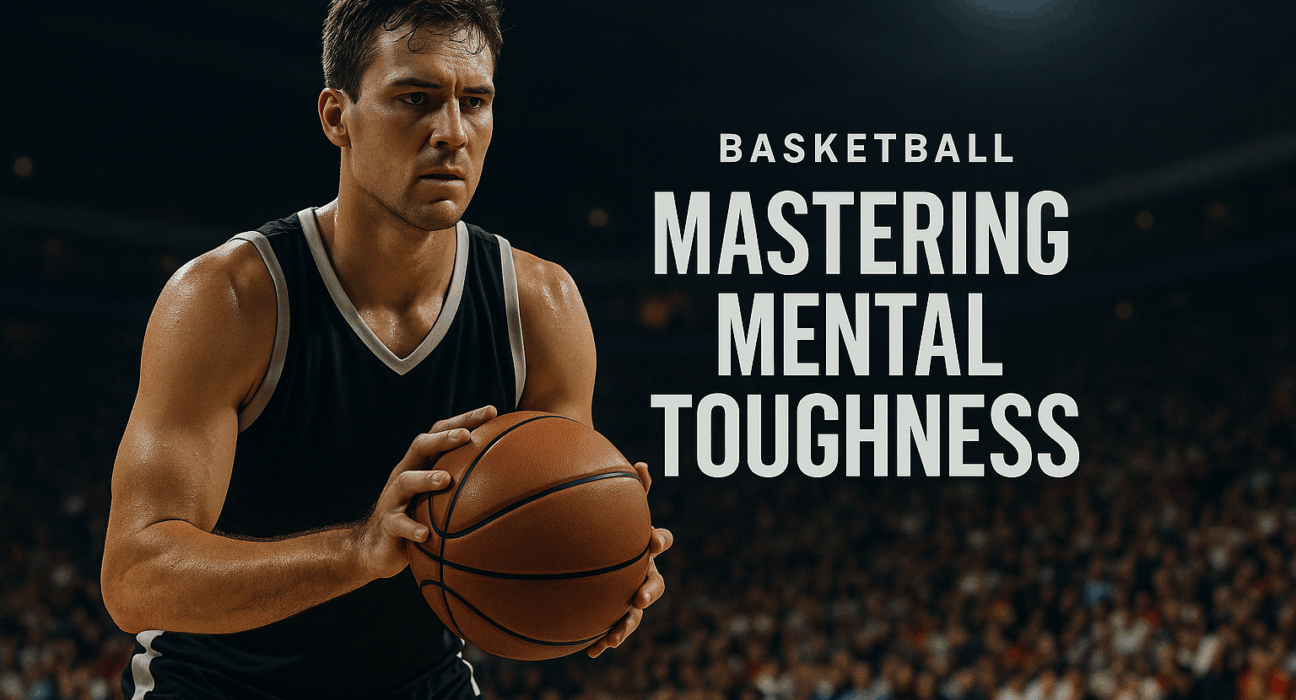In basketball, a game’s outcome often hinges not only on physical skills but also on mental toughness, especially during close games. The ability to stay calm, focused, and composed when the pressure is at its highest is what separates great players from average ones. Whether it’s making the game-winning shot or defending in the final seconds, maintaining a strong mental game is essential for success.
Here’s how you can cultivate mental toughness to thrive in those critical moments of a close basketball game.
Key Strategies for Staying Mentally Tough
| Strategy | Explanation |
| Positive Self-Talk | Replace negative thoughts with affirmations to boost confidence and focus. |
| Breathing Techniques | Deep, controlled breathing helps reduce anxiety and maintain composure. |
| Focus on the Process | Stay focused on executing the next play, not on the outcome of the game. |
| Visualization | Mentally rehearse successful plays and scenarios to boost confidence. |
| Routine and Preparation | Establish a pre-game routine to enter the game mentally prepared and calm. |
| Resilience and Adaptability | Learn to bounce back quickly after mistakes and stay focused on the next play. |
1. Positive Self-Talk
When a game is on the line, negative thoughts like “I can’t do this” or “I’ll mess up” can creep into your mind. Combat this with positive self-talk.
Example Affirmations:
-
- “I am prepared for this moment.”
- “I have the skills to succeed.”
- “I will stay calm and execute my game plan.”
Repeating positive affirmations, especially during critical moments, can reinforce your confidence and shift your mindset from doubt to determination.
2. Breathing Techniques
When the pressure mounts, it’s easy for your heart rate to spike, leading to panic or anxiety. One of the best ways to calm yourself is through deep breathing exercises. Focused breathing helps you regain control over your emotions and composure.
Breathing Technique:
-
- Inhale slowly for 4 seconds.
- Hold the breath for 4 seconds.
- Exhale slowly for 4 seconds.
- Repeat this process several times during crucial moments or when you need to refocus.
This technique promotes relaxation and helps reduce stress, enabling you to make smarter decisions on the court.
3. Focus on the Process, Not the Outcome
In tight games, it’s easy to start thinking about the final result: winning or losing. However, focusing too much on the outcome can cause unnecessary pressure and hinder performance. Instead, focus on the process—the next play, the next shot, or the next defensive move.
- Mindset Tip: Break down the game into manageable chunks and concentrate on executing each play to the best of your ability. This reduces anxiety and helps maintain your mental clarity.
4. Visualization
Visualization is a technique that can significantly enhance your mental toughness. Before critical moments, take a moment to mentally rehearse what success looks like. Visualize yourself making free throws, defending a key player, or even celebrating a big win.
Visualization Exercise:
-
- Find a quiet space and close your eyes.
- Imagine yourself in a high-pressure scenario—e.g., shooting a free throw with seconds left on the clock.
- Visualize every detail: how you’ll take your shot, how your body will feel, and the ball swishing through the net.
By mentally rehearsing success, you train your brain to stay calm and confident when the real moment arrives.
5. Routine and Preparation
Mental toughness starts long before the game begins. Having a consistent pre-game routine can set you up for success. Whether it’s listening to motivating music, reviewing game film, or getting in some last-minute shooting practice, a well-established routine helps you get mentally prepared and focused.
Pre-Game Routine Tips:
-
- Visualize success before the game starts.
- Focus on the key elements of your game (e.g., free throws, ball-handling).
- Establish a consistent warm-up routine to get your body and mind in sync.
When you know you’ve put in the work and followed your preparation rituals, it gives you a sense of control and confidence during close games.
6. Resilience and Adaptability
No game goes perfectly, and in tight situations, mistakes are inevitable. Resilience is about bouncing back from these errors and adaptability is about staying flexible to adjust to any unforeseen challenges on the court.
How to Stay Resilient:
-
- Accept mistakes as part of the process and focus on what you can control.
- Stay engaged with the game by concentrating on the next play.
- Maintain your composure, even if the momentum shifts against your team.
When you demonstrate resilience, you not only help yourself but also encourage your teammates to keep fighting until the final whistle.
Conclusion
Staying mentally tough in close basketball games is as crucial as physical preparation. By incorporating strategies like positive self-talk, controlled breathing, focused execution, and resilience, you can significantly enhance your ability to perform under pressure. Remember, mental toughness isn’t built overnight—it’s a skill that needs consistent practice. With these techniques, you’ll be ready to handle any high-stakes scenario that comes your way on the court.

